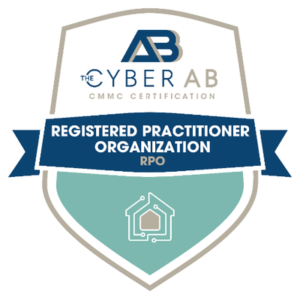Private security cameras have become a common sight in American neighborhoods. Amazon’s Ring cameras have proven particularly popular, though many home security companies and IoT device makers offer similar products. Many consumers purchase these cameras to secure their property and provide peace of mind. However, the effectiveness of these devices in preventing crime is inconclusive, and these increasingly sophisticated, web-enabled cameras have privacy implications that drastically outstrip the closed-circuit TV (CCTV) cameras of yesteryear.
In the past, security cameras were typically installed in commercial locations and only collected low-quality video footage. Businesses tend to position cameras to monitor internal spaces, such as store shelves, or points of entry. Conversely, today’s private IoT cameras, which capture high-definition video and audio, are regularly installed in residential areas and often face outwards, surveilling not only the owner’s private premises, but also their neighbors’ property as well as public streets and sidewalks. Furthermore, the prevalence of these devices and sheer volume of video and audio data collected are potentially far more invasive in our daily lives than encountering the occasional CCTV at a mall or airport.
Privacy Concerns
This ongoing rollout of private security cameras has generated concern that consumer devices are now serving as the eyes and ears of law enforcement. Companies are required to provide data to law enforcement if served a search warrant, but police frequently circumvent the need for court approval to access data from security cameras.
Amazon Ring, for instance, has partnerships with one in 10 American police departments that allow law enforcement to request up to 12 hours of video footage taken within a half mile of a suspected crime. Police post requests for footage using the Ring Neighbors app, and users can respond by sharing their uploaded data through the app. No search warrant required. This footage is provided to law enforcement largely at the discretion of the camera owner.
In response to questions submitted by Massachusetts Senator Ed Markey, Amazon revealed that it also provides Ring camera footage to police in “emergency situations” despite the absence of user consent or a warrant. This occurred 11 times in 2022. Amazon explained that it only takes this step in situations involving imminent danger of death or serious physical injury, such as kidnappings. However, there is no process for a judge or the device owner to review these decisions. Google includes similar exceptions for emergency situations in its privacy policies.
Additionally, there are some companies that sell security camera data to data brokers, enabling the police to simply buy the information from those third parties.
Legal Implications
The ability of law enforcement to access private security camera footage without a warrant has important legal implications for Americans, particularly concerning their First and Fourth Amendment rights.
The Fourth Amendment guarantees Americans the right to a “reasonable expectation of privacy.” This right prohibits government intrusion into private spaces, like a person’s home, documents and electronic devices, without a search warrant. However, any activities conducted in public, such as on a residential street or sidewalk, where privacy cannot be expected are exempt from this legal protection. Because consumer security cameras are typically installed in private residences, they regularly capture video and audio from neighbors, pedestrians and others who are unaware they are being recorded. This invisible surveillance potentially undermines the expectation of privacy people may have when, for example, holding a private conversation on a sidewalk.
Doorbell cameras can record clear audio from over 20 feet away, potentially recording everything said in an apartment hallway, public sidewalk or even inside a residence with a screen door or open window. This potential for widespread electronic eavesdropping in both public and private areas prompted Senator Markey to request that audio recording be disabled by default on Ring doorbells, requiring users to intentionally enable it if desired. Amazon denied this request.
There’s concern that the millions of private security cameras deployed across the country are serving as a massive civilian surveillance network for law enforcement, degrading the Fourth Amendment’s guarantees. Legislation has been proposed to prohibit the police from buying data, including security camera recordings, from third-party data brokers; however, even if passed, the legislation would do nothing to prevent Ring camera owners from handing it over willingly.
This civilian surveillance network also threatens First Amendment rights, including freedoms of speech and assembly. Fear that political gatherings or meetings may be recorded could create an environment of uncertainty, potentially deterring people from attending protests or discussing controversial topics. A report issued by the Electronic Frontier Foundation (EFF) in 2021 lent credence to these concerns. EFF revealed that the Los Angeles Police Department (LAPD) had asked Amazon Ring users to provide footage of Black Lives Matter protests against police violence that occurred throughout the Summer of 2020, setting a clear precedent for leveraging home devices to surveil political activities.
Government-Sponsored Private Surveillance
Several local governments are seeking to increase use of private security cameras to aid law enforcement activities, using public funds to the finance the expansions and, in some cases, stipulating how they should be used.
For instance, in the Washington, D.C., metro area, the D.C. Office of Victim Services and Justice Grants (OVSJG) runs a private security camera rebate program, and the Montgomery City Council recently voted on a similar programto incentivize residents to deploy these devices. The OVSJG program offers rebates to businesses, nonprofits and religious institutions that purchase and install security camera systems on their property. They are also required to register the cameras with the Metropolitan Police Department. Similarly, the Montgomery County legislation would enable police to maintain a record all cameras registered through the program. And those cameras must be installed in “priority areas” defined by the police chief based on public safety needs.
Legal challenges are expected should footage tied to these types of programs be used in a criminal trial. Although private parties are not usually bound by the same Fourth Amendment restrictions as law enforcement, they are subject to its limitations if deemed an “agent of the government.” Because the government is encouraging, funding, tracking and directing the use of security cameras in many of these incentive programs, a defense counsel could argue that participating civilians are indeed serving as agents of the government.
Bracing for the Future
While there are many legal battles still to be fought between government proponents and privacy advocates, it’s clear that consumer surveillance technology is changing the privacy landscape in significant ways.
The experts at MBL Technologies are committed to staying ahead of the latest threats to personal or commercial data. We offer robust privacy and data protection services to secure your organization’s and its customers’ data against whatever the future brings.




